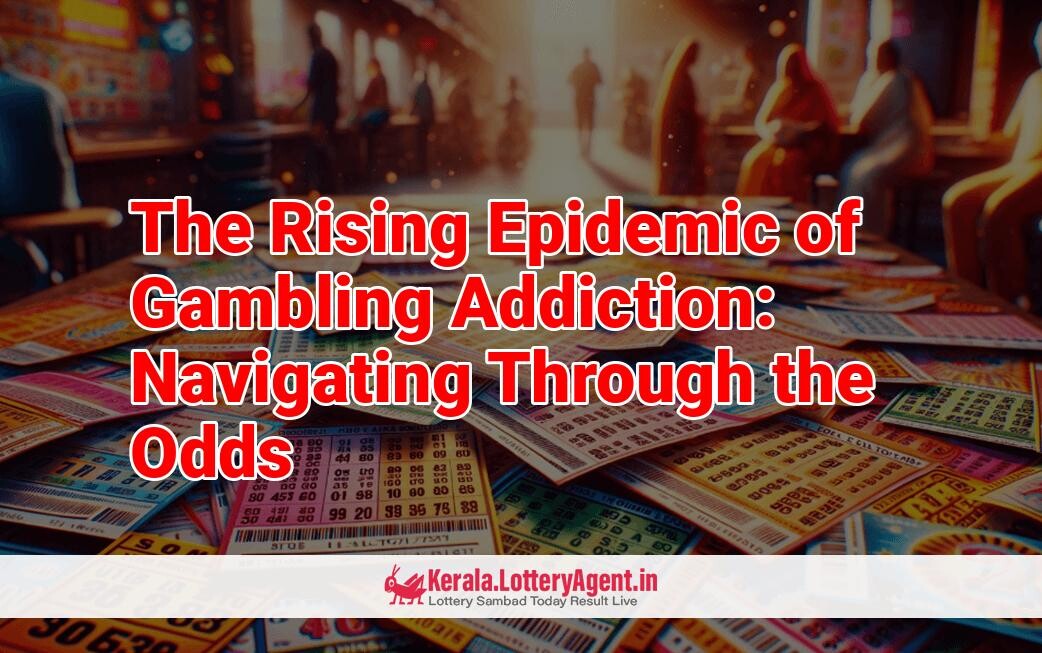
Modern psychiatry has shed light on the troubling reality that addiction is a brain disorder characterized by compulsive engagement in rewarding stimuli despite adverse consequences. Among various forms of addiction, gambling addiction has emerged as an increasingly prevalent issue across the globe.
The proliferation of both land-based gaming establishments and online gambling platforms – offering lotteries, betting, and a plethora of casino games – has made gambling more accessible than ever before. While these activities may serve as entertaining pastimes, they also possess the potential for abuse, further exacerbated during the trying times of the pandemic.
Experts have pinpointed the lockdown period as a prime catalyst for the growth in gambling and gaming addictions worldwide. The combination of social isolation, heightened stress levels, financial uncertainties, and the constant search for relaxation activities has provided fertile ground for the development of pathological gambling behaviors.
Gambling addiction, a mental health disorder, renders individuals powerless to curb their gambling habits despite being cognizant of their detrimental impact on their wellbeing. This behavioral pattern bears striking resemblance to impulse-control disorders such as kleptomania or pyromania.
Statistics draw a concerning picture: around 600,000 individuals in the United Kingdom alone wrestle with gambling addiction, and more than 2% of American gamblers exhibit addiction symptoms. With such alarming figures, recognizing and addressing this issue promptly becomes non-negotiable.
Gambling addiction can manifest in varied forms, each with its unique set of symptoms, further complicating the fight against this hidden epidemic. The ramifications of gambling addiction extend beyond the gambler’s life, sabotaging the quality of life of their loved ones. Be it neglecting significant familial occasions or jeopardizing financial stability, the consequences can be dire.
This mischief does not merely affect relationships and finances; it fundamentally alters the gambler’s mental state. Often, mental health issues either precipitate or are a consequence of a gambling addiction, creating a vicious cycle of dependency and despair.
Identifying gambling addiction entails recognizing its signs. Symptoms like the inability to focus on anything other than gambling, the need for increasingly larger sums of money to achieve the desired excitement, and the powerlessness to control losses are telltale indicators of a deep-rooted problem.
To effectively confront a gambling addiction, a multi-faceted approach is required—ranging from self-help methods to professional interventions. Acknowledging the presence of a problem and understanding the underlying reasons for gambling are critical initial steps.
Joining support groups akin to Gamblers Anonymous, seeking professional counseling, and considering medication-assisted treatment are several viable strategies for those grappling with gambling addiction. However, it is equally important to engage in alternative, fulfilling activities that can divert attention from gambling urges.
For those with a loved one battling gambling addiction, it’s imperative to offer support and set firm boundaries. Protecting oneself financially and emotionally, seeking assistance from others, and refraining from enabling behavior are crucial strategies for helping an addicted gambler.
Dealing with lapses and suicidal thoughts with added support, such as national helplines or medical professionals specializing in addiction, can ensure that the path to recovery, while challenging, is navigable.
Understanding the complexity of gambling addiction, debunking common misconceptions surrounding it, and adopting a comprehensive support framework can facilitate overcoming this silent destroyer of lives. The journey requires perseverance, patience, and a readiness to seek help, both within one’s support network and through professional channels.
Ultimately, the gravity of gambling addiction cannot be overstated. Its devastating impact on finances, relationships, and mental health makes timely recognition and decisive action imperative. With collective awareness and a spectrum of supportive measures, individuals can reclaim their lives from the clutches of gambling addiction and restore balance to the disrupted lives of all those affected.











